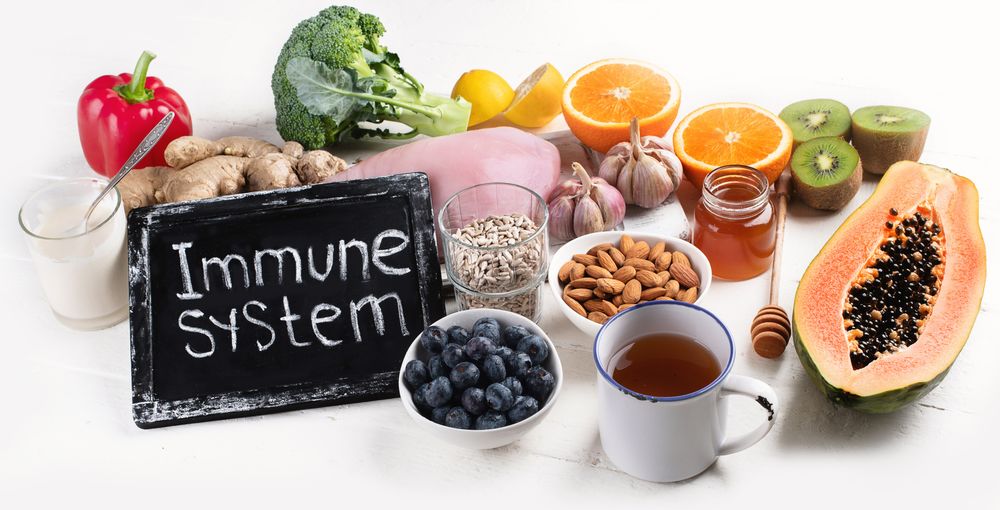Simply put, there are no foods that will ‘boost’ our immune system and prevent or treat COVID-19. However, eating a healthy balanced diet is still essential for good health and normal immune function.
Eat plenty of fruits and vegetables
Fruits and vegetables are among the most important foods for supplying the vitamins, minerals and fiber our body needs for good health and normal immune function.
Choose whole grains over refined grains
Whole grains, unlike refined grains, maintain most of the structure of the grain, keeping the layers that hold the vitamins, minerals and fiber. In addition, whole grains also provide an important source of carbohydrates which give us energy and can help us feel fuller for longer periods.
Replace saturated fats with unsaturated fats
Fats are an important part of a healthy diet. However, not all fats have the same effect on our health. We can do this by reducing our intake of foods such as fatty meats, high fat dairy products and tropical oils like coconut oil and adding foods such as nuts, oily fish and plant oils such as olive and rapeseed oil.
Limit foods and drinks high in fat, sugar and salt
Foods and drinks high in fat,sugar and salt such as cookies, potato chips, chocolate and sugary drinks, when eaten in high amounts can lead us to consume more calories than we need. As these foods often provide little nutritional benefit, they are not needed for a healthy diet and should only be enjoyed in small amounts and eaten occasionally.
Control portion sizes
It can be difficult to get portion sizes right, especially when cooking at home. Understanding what the right portion looks like can help us stay in energy balance and avoid under- or overeating. Not all foods have the same portion sizes.
Choose both animal and plant-based proteins
Protein is essential for the healthy functioning of our body and immune system.We can get protein from both animal and plant based sources, such as beans, pulses, fish, eggs, dairy products and meats.
Our protein requirement changes depending on our stage of life. Adults are recommended to eat at least 0.83 g of protein per kg body weight per day, equivalent to 58 g/day for a 70 kg adult. We should choose protein-rich foods that not only help us meet our needs but also support a healthy and sustainable diet.
Stay safe while food shopping
Grocery stores remain open during the COVID 19 pandemic and there is no need to stockpile foods as the supply of food to stores remains stable.
The risk of contracting COVID-19 from touching contaminated food packaging is very low and this form of infection has not been reported. In stores, the biggest risk of contamination remains contact with other people and ‘high-touch’ surfaces such as weighing scales, shopping-cart handles or elevator buttons, although many stores are taking measures to sanitize these surfaces. Therefore, we should, keep the appropriate distance from other people, avoid touching our faces while out shopping, and wash our hands both after returning home from the shop and after handling newly purchased food packaging.
Don’t forget about food safety
According to EFSA, there is currently no evidence that COVID-19 is transmitted through eating food. However, good food safety practices are important to minimize the risk of food borne illnesses.





